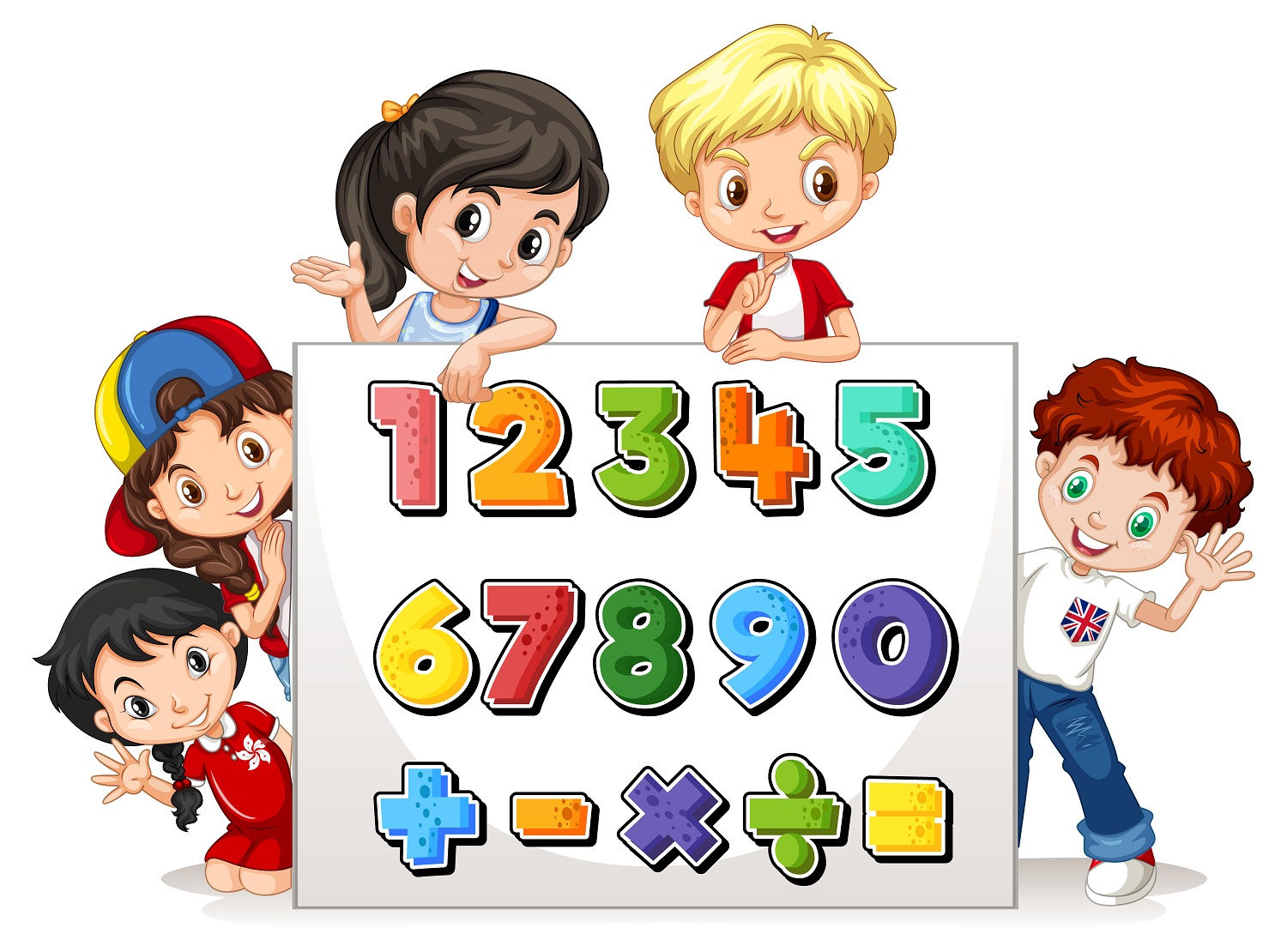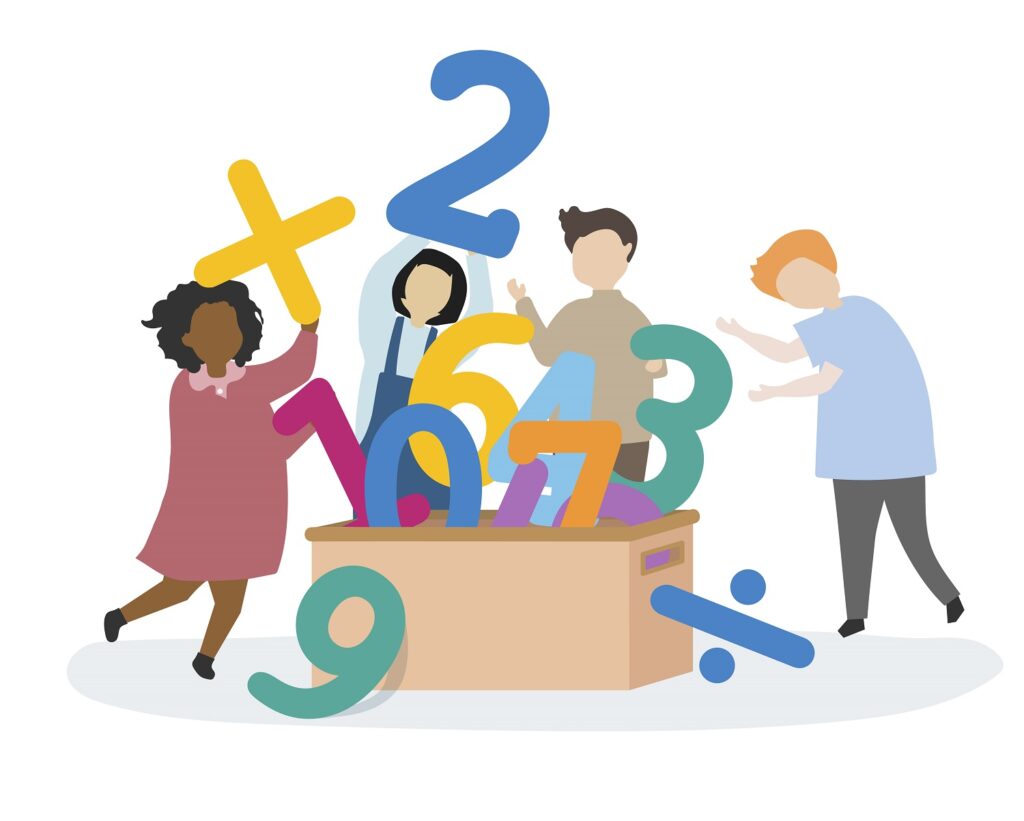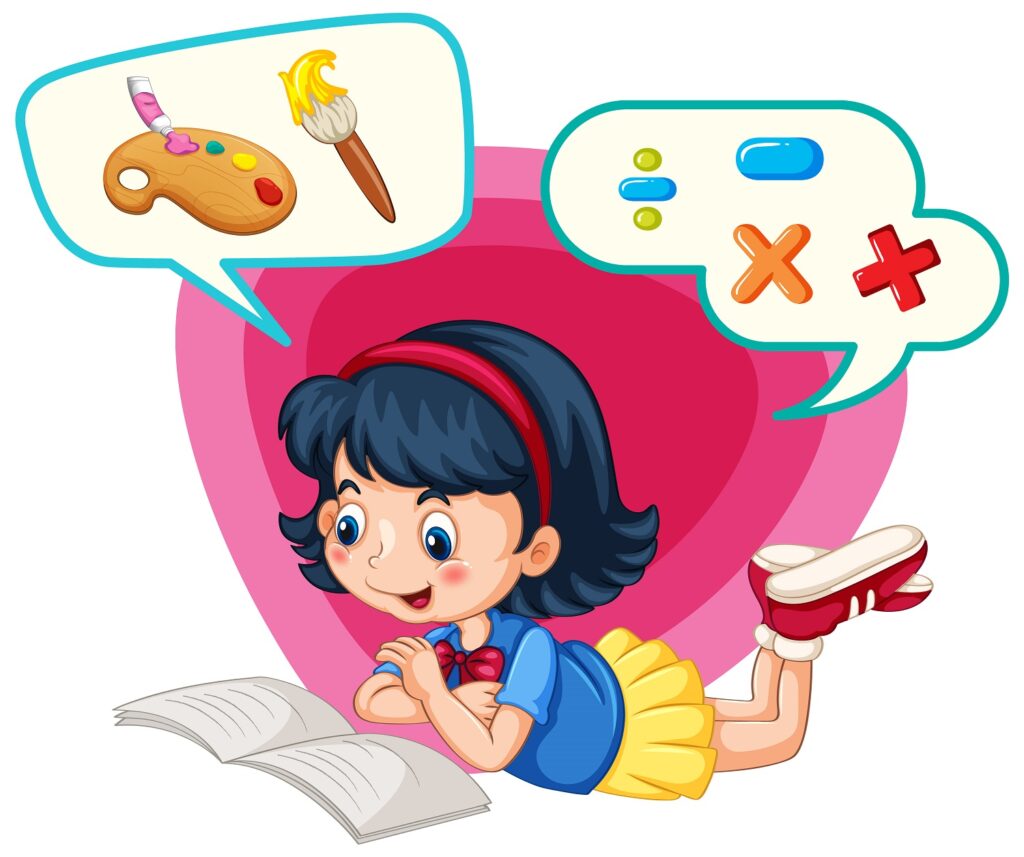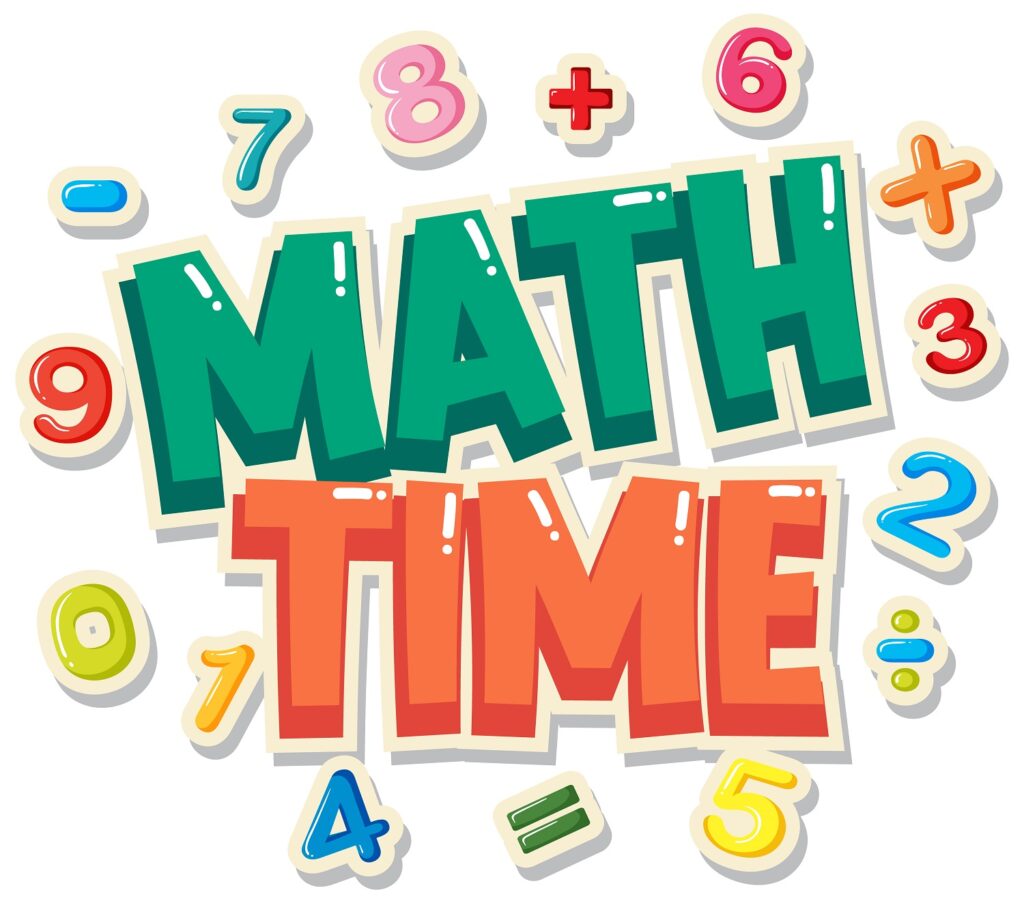
Mathematics or Math is most often considered as an intimidating subject by many children, but it doesn’t have to be. By adding elements of fun and play into learning, we, at K-Rockets, turn Math into an enjoyable and engaging experience for kids. The world of Math is full of games – where learning meets fun and entertainment. Most of these games could be played at home without any fancy material requirements. In this blog, we’ll walk you through the exciting world of Math games, exploring their benefits, showcasing a variety of games for different age groups, and providing tips for incorporating them into your child’s learning journey.

The Benefits of Math Games:
Before we dive into the world of Math games, let’s take a moment to understand why they are such valuable tools for learning:
1. Engagement:
Children love to play and have fun without the burden and pressure of learning. Math games captivate children’s attention by turning learning into a playful and interactive experience. The element of competition, teamwork, or self-challenge keeps kids motivated and eager to participate.
2. Reinforcement:
Games provide opportunities for repeated practice of math concepts in a fun and non-threatening environment. Through gameplay, children reinforce their understanding of key math skills and concepts. Many times through fun and interactive games, kids experience and understand real life applications of Math, which becomes critical to their learning.
3. Problem-Solving Skills:
Many Math games involve strategic thinking, decision-making, and problem-solving. By navigating challenges and obstacles in games, children develop critical thinking skills and learn to approach Math problems creatively. K-Rockets Math programs are based on international best practices and are structured to develop analytical and practical problem solving skills. During our Math classes, we emphasize on the fact that problems and their solutions are multi-dimensional, i.e. there is not one single solution to any problem. Playing and engaging in games helps them realize this fact from a different perspective.
4. Confidence Building:
Success in Math games boosts children’s confidence and self-esteem. As they overcome challenges and achieve milestones in games, they develop a positive attitude towards Math and become more willing to tackle Math-related problems and tasks.
5. Social Interaction:
Multiplayer Math games promote collaboration, communication, and teamwork. Children learn to work together, share ideas, and support each other in achieving common goals, fostering social skills alongside Math proficiency.

Math Games for Different Age Groups:
There are a variety of Math games that can be played with children of different age groups. Here are a few examples of Math games that we have successfully incorporated at K-Rockets:
1. Counting and Number Recognition (Preschool – Kindergarten):
- Number Bingo: A classic game of bingo with numbers instead of letters. Children match numbers called out by the bingo caller to those on their bingo cards, reinforcing number recognition skills. Here’s an interactive example: https://toytheater.com/bingo/
- Counting with Bean Bags: Scatter bean bags (or any similar item readily available) with numbers written on them on the floor. Children take turns throwing a bean bag and counting the number it lands on.
- Number Hunt: Hide numbered cards around the room or outdoors. Children search for the cards and identify the numbers they find.
2. Addition and Subtraction (Grades 1-3):
- Math Fact War: A variation of the card game War where players solve addition or subtraction problems to determine the winner of each round.
- Race to 100: Players take turns rolling dice and adding the numbers rolled to a running total. The first player to reach 100 wins.
- Subtraction Bowling: Set up bowling pins (or disposable cups) labeled with numbers. Players roll a ball to knock down pins and solve subtraction problems based on the numbers knocked down.
3. Multiplication and Division (Grades 4-6):
- Multiplication Bingo: Similar to Number Bingo, but with multiplication problems instead of numbers. Children solve multiplication problems to mark off squares on their bingo cards.
- Math Jeopardy: Create a Jeopardy-style game board with different categories and point values. Children solve multiplication and division problems to earn points for their team. Here’s an interactive website where you can play this game with multiple players: https://www.math-play.com/math-jeopardy.html
- Factor Capture: Players take turns rolling dice and finding factors of the number rolled. The player with the most factors captured wins.
4. Fractions and Decimals (Grades 6-8):
- Fraction War: A card game where players compare fractions to determine the winner of each round. The player with the larger fraction collects the cards.
- Decimal Dash: Set up a race track with spaces labeled with decimal numbers. Players roll dice and move their game pieces forward based on the decimal rolled.
- Fraction Puzzles: Create puzzles where children match fractions with their equivalent decimal or percentage representations.

Tips for Incorporating Math Games into Learning:
Now that we’ve explored a variety of math games, here are some tips for incorporating them into your child’s learning routine:
- Make it a Regular Activity:
- Schedule regular math game sessions as part of your child’s learning routine. Consistency is key to reinforcing math skills and keeping kids engaged. Consider enrolling in fun and interactive STEM programs and Math classes where children are continuously challenged and follow a routine to practice their Math skills.
- Tailor Games to Skill Levels:
- Choose games that align with your child’s current math level and learning goals. Adjust the difficulty level or rules as needed to provide an appropriate challenge.
- Combine Games with Real-Life Situations:
- Relate math games to real-life situations to make learning more meaningful. For example, use grocery shopping or cooking as opportunities to practice addition, subtraction, and measurement. Play board games such as Monopoly and encourage children to lead with the money calculations.
- Encourage Friendly Competition:
- Foster a spirit of healthy competition by playing math games with siblings, friends, or family members. Friendly rivalry can motivate children to strive for improvement and excel in math.
- Celebrate Achievements:
- Celebrate your child’s successes and milestones in math games. Praise their effort, persistence, and problem-solving skills, regardless of the outcome.
- Provide a Variety of Resources:
- Explore a variety of math games, apps, websites, and resources to keep learning fresh and exciting. Encourage your child to explore different formats and discover what works best for them. If a child continues to struggle, consider enrolling them in a professional Math class for kids where they are evaluated and are provided help based on their learning opportunities.
Math games offer a dynamic and engaging way to make learning math fun and enjoyable for children of all ages. Whether counting beans, racing to solve multiplication problems, or competing in math Jeopardy, there’s a math game out there for every child’s interests and skill level. By incorporating math games into your child’s learning routine and providing opportunities for play, exploration, and discovery, you can ignite a lifelong love for math and empower your child to excel in this critical subject.


